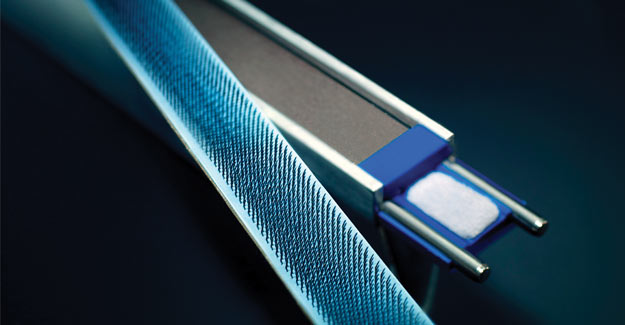BRÜCKNER To Showcase Latest Finishing Technology At ITMA Asia 2016
BRÜCKNER To Showcase Latest Finishing Technology At ITMA Asia 2016

The German textile machinery maker BRÜCKNER is to show their new orientation towards customers in ITMA Asia. In hall 6, booth E01 the company will also present new developments and products related to woven fabrics sector.
Almost 70 years, the family-owned company is one of the leading producers of textile finishing lines. BRÜCKNER supplies consulting services and lines for almost all purposes in the field of textiles, technical textiles, nonwovens or floor coverings. Highest quality, high efficiency and long service life of the machines as well as a close cooperation with the customer are the most important factors of success. BRÜCKNER offers among other things sanforising lines, continuous dyeing lines, infrared dryers, relaxation dryers, compactors and stenters for coating, drying and heat-setting. Services like consulting about energy saving and After Sales Service are of course a part of the company’s portfolio, too. In the company’s Technology Centre in Leonberg, Germany, customers and interested companies can make tests and develop their products. They will be supported by experienced technologists who will give useful advice to allow an even more efficient use of the machinery lines. On its booth in Shanghai, BRÜCKNER will present an extensive and varied program.
POWER-SHRINK Sanforising line for the finishing of woven fabric
The rubber belt compacting line allows the sanforising and compacting of very different types of woven fabrics. Finishing on a sanforising line gives the fabric a more stable structure, a silky shine, a smooth hand and minimum residual shrinkage values. Typical end products are fabric for shirts and trousers, jeans, bed linen, working clothes, home textiles or upholstery material. BRÜCKNER offers single or double sanforising lines and combinations with felt calenders depending on the product and the customer’s requirements.
POWER-COLORTHERM continuous dyeing line
With a continuous dyeing line by BRÜCKNER the customers will achieve uniform and reproducible dyeing results. The lines ensure a crease-free fabric flow without shading and migration. The symmetrical structure of the air circulation zones prevents a different shade on the two fabric sides. In addition the installed power is adapted to the low air flows required for dye drying which leads to a considerably lower energy consumption. Typical end products dyed on BRÜCKNER lines are fabrics for shirts and trousers, working clothes & home textiles.
Continuous research and development efforts have made BRÜCKNER machines today even more efficient and increased their service life and support the customers in minimising their ecological footprint. Example: an indirect gas heating system has been developed particularly for the finishing of knitted fabric, which saves in combination with special heat-recovery system energy and prevents the yellowing of the fabric. This is of particular importance in case of sensitive fabric containing elastane. If a company does not want to invest in a completely new line, BRÜCKNER offers a modification of the heating system for example from oil to indirect gas heating.
And BRÜCKNER developed a new minimum application unit. This application unit works with a minimum liquor tank of approx. 2.5 liters for each meter of working width. The minimum application quantities require in the following processes (for example drying or curing) clearly less water evaporation which has a positive effect on the energy requirement at the respective dryer. In addition there is no waste or prodigality of chemicals and no expensive disposal is required since the contents of the liquor tank can be used almost completely.
BRÜCKNER offers regarding the question of energy efficiency also the possibility of retrofitting for example a heat-recovery or exhaust air cleaning system. These systems can be retrofitted without problems also to machines made by other producers and help to safe energy and to reduce the environmental impact.



 textileexcellence
textileexcellence 







